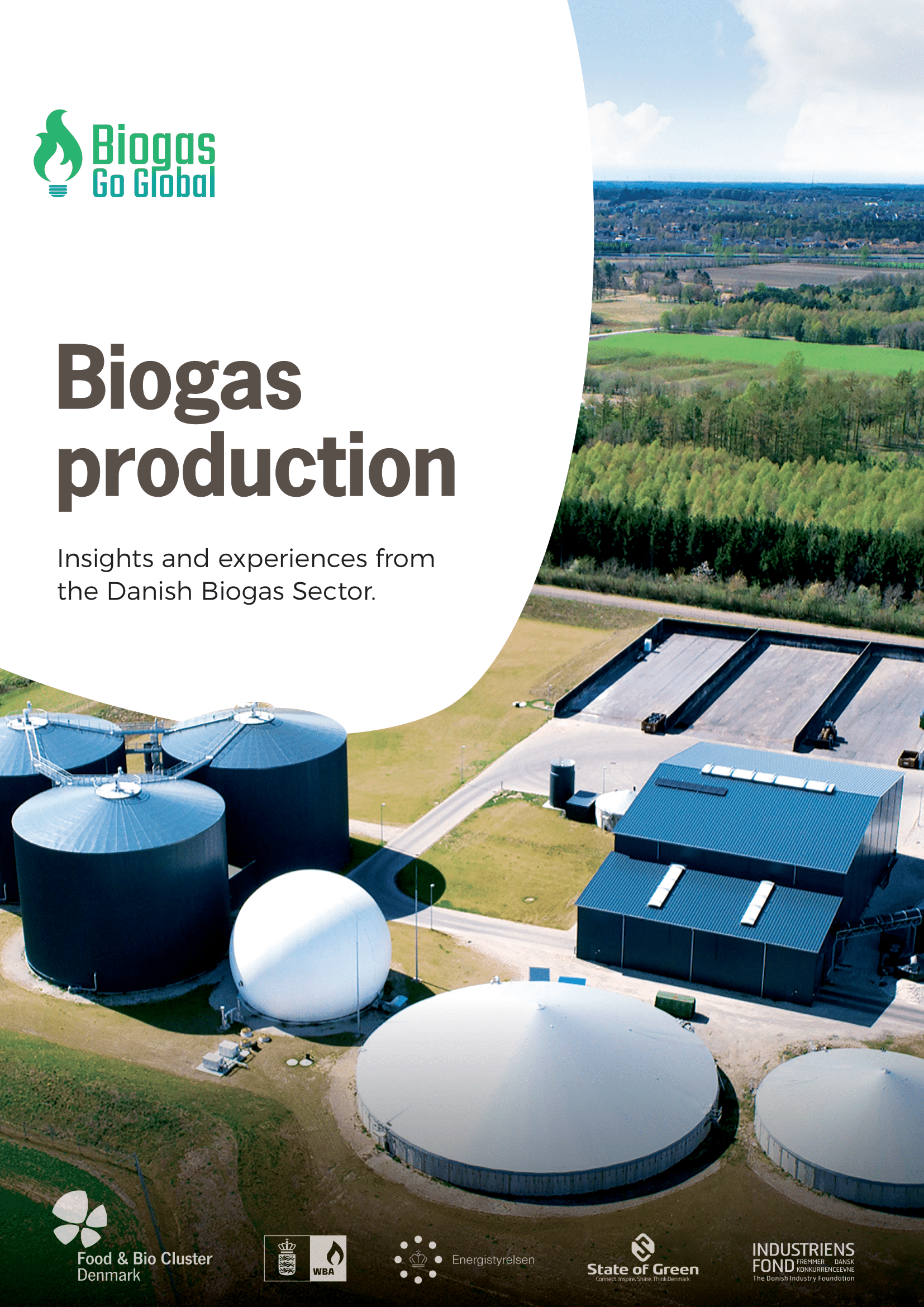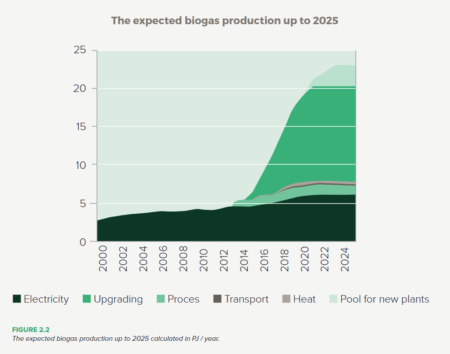Publication
Biogas
Biomass
Biogas production – Insights and experiences from the Danish Biogas Sector

Denmark is leading the way in biogas production
The growing awareness of resource depletion and climate challenges has further clarified the huge potential for reducing greenhouse gas emissions from livestock production by utilising the energy content and fertilizer value of manure. A large number of Danish pig and dairy farmers are involved in livestock manure-based biogas production, most of them via farmer cooperative owned industrial size biogas plants.
The use of slurry and muck as organic fertilizer is a much debated issue. This is because organic fertilizer is an important source of nutrients, but can also adversely impact the environment if not handled correctly. To ensure the efficient use of the nutrients in organic fertilizer and thus a low impact on the environment, Danish companies have a constant focus on improving application techniques. Danish research institutions and universities have carried out numerous field trials to identify the best application strategies. This effort has completely changed the practice of slurry and muck application over the last 20 years. At the same time, the EU and its member states have introduced regulations for the application of organic fertilizer to minimise the environmental impact with associated repercussions for application practices.
Biogas production in Denmark has increased rapidly since 2012, and it is expected that 30% of the gas in the gas grid will be renewable natural gas by 2023. More than 11 million tonnes of biomass are used to produce biogas and fertilizer on an annual basis.
This publication is for anybody with an interest in innovative ways to handle the current challenge of reducing the environmental and climatic impacts of livestock farming and urban waste stream, while at the same time increasing the renewable biogas energy, and urban waste stream production and the demand for animal products for a growing population.
Consider reading: Biogas from Copenhageners’ food waste can now replace imported natural gas

Download the publication










